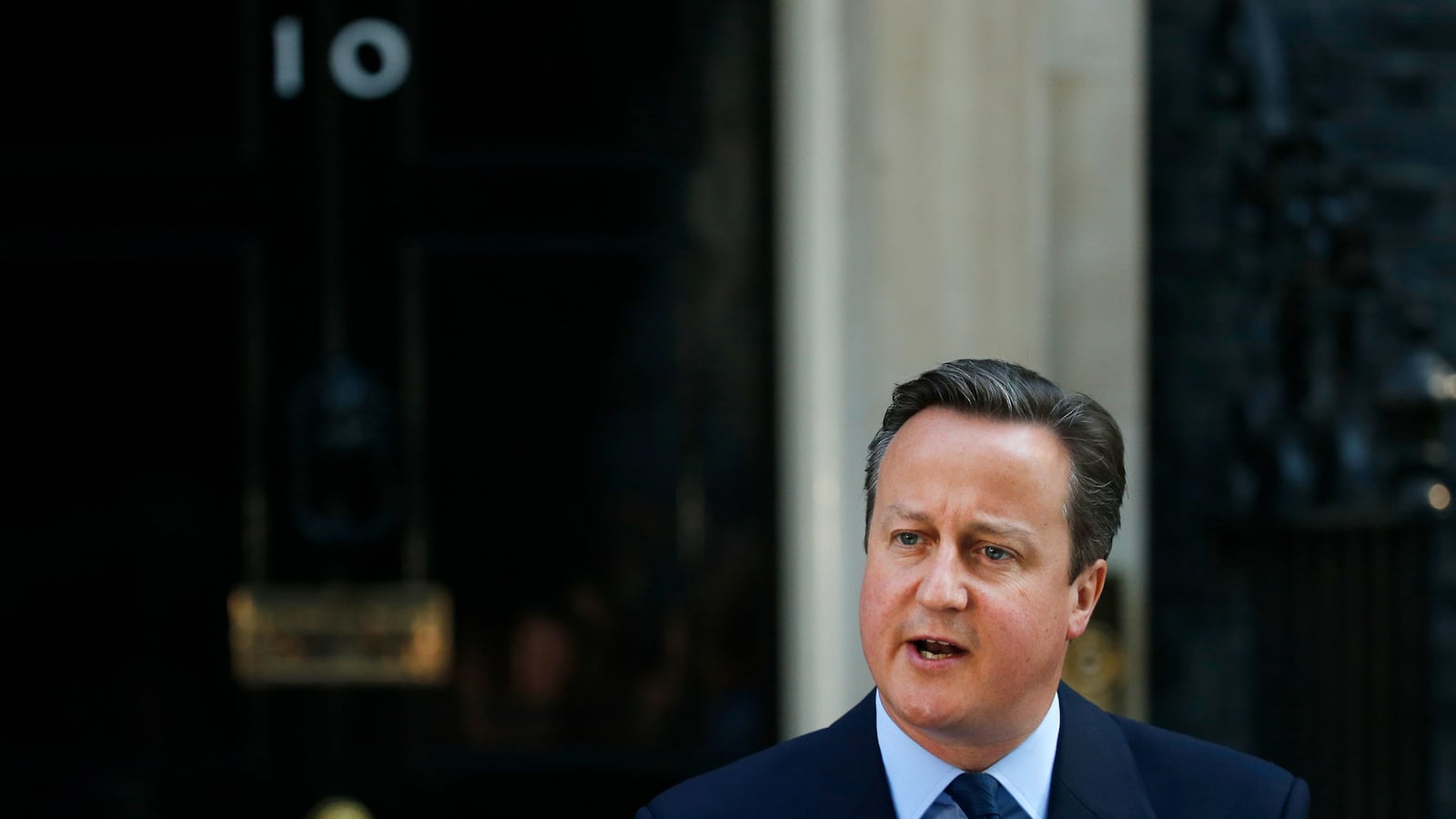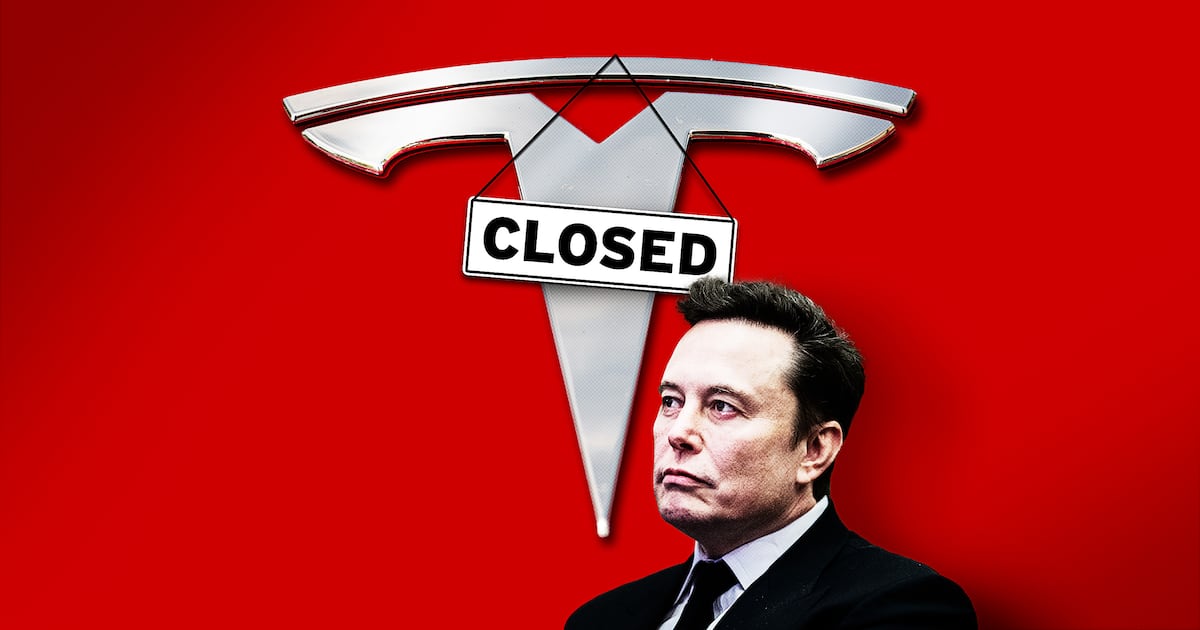LONDON — The curse of the hot-hand fallacy has condemned Prime Minister David Cameron to the ranks of the worst leaders in British political history.
After a remarkably risky hot-streak, Cameron got reckless enough to take one big gamble too many.
He bet that holding a referendum on membership of the European Union would stave off a minor electoral challenge from the right without doing too much harm.
He thought he had a hot hand—he couldn’t lose. He should have listened to the psychologists who first identified the fallacy back in 1985—they published ample evidence that there was no such thing as a hot streak; success in one random event does not lead to more in another.
For Cameron, the over-confidence ended in catastrophe. He lost the vote; and hundreds of billions of pounds are being wiped off the economy; Scotland is threatening another independence vote; civil war has gripped the Conservative Party; Britain may lose its AAA rating; and Cameron is out of a job.
On the most seismic day in British politics for generations, Cameron announced that he would resign as prime minister. He will remain in post as a lame-duck caretaker to try and calm the raging markets until a successor is chosen.
Incredibly, this comes 13 months after Cameron secured the Conservative Party’s first majority government in 20 years.
With the chance to serve as prime minister until the end of the parliamentary term in 2020, Cameron should have been eyeing up a spot in the Pantheon of prime ministerial greats.
But then his greatest strength, good fortune, turned against him. He believed he could get away with one last gamble, one more crisis.
“I am a very lucky person,” said the prime minister earlier this year when a portion of his inheritance got caught up in the Panama Papers. “I had wealthy parents who gave me a great upbringing.”
Indeed they did.
A distant relative of the royal family, Cameron was educated at Eton College, Britain’s most exclusive boarding school, before studying at Oxford. In love, there was more of the same. “I'm very lucky!” he said, of Samantha Cameron, the daughter of Viscountess Astor and Sir Reginald Sheffield, 8th Baronet.
This is not to say Cameron relied only on his good luck, he was a terrifyingly efficient as a PR executive for a TV company and was said to have been a sharp and perceptive briefer as a young advisor in the Conservative Party.
Once he had succeeded in taking over as Conservative leader in 2005, he faced off against Prime Minister Tony Blair for a couple of years. He was able to hone his skills before his first major electoral test came against the new prime minister, Gordon Brown.
Cameron was blessed. He was lucky that Brown blew his chance for a snap election before voters turned against the brusque Scot. Cameron was lucky that Brown was such an unconvincing prime minister.
The next permanent Labour leader he faced? Ed Miliband. The next? Jeremy Corbyn. Lucky, lucky, lucky.
When Cameron began his second term last year, he had already won two referendums and promised a third.
Cameron’s idol, Margaret Thatcher, had warned that referendums are “a device of dictators and demagogues" but still he plowed on.
To put it in context, there have only been three national referendums in British history. Cameron has now overseen two of them. In his first, he successfully upheld Britain’s traditional first-past-the-post voting system, a referendum that was promised to the Liberal Democrats as part of the coalition deal, but the public never got excited about. He then agreed to a regional referendum in Scotland on the question of independence, before opening the gates to a referendum on the European Union.
If the Scottish referendum had taught Cameron one thing, it should have been that it is almost impossible to control the forces you are unleashing in a patriotic nationwide vote.
The stunning growth of the Scottish National Party almost blew Cameron away in a referendum he would never have offered if he thought he might lose. He came close to allowing Scotland to seize independence for the first time since the bloody era of William Wallace seven centuries ago.
A late promise of more devolved powers, seemingly dreamed up in a last-minute panic, helped to save the union. The job got done, just in the nick of time.
A U.K. Independence Party official summed up Cameron’s ability to get out of seemingly impossible scrapes. “If a single phrase were to sum up his political career it would surely be ‘in one bound he was free,’ said Patrick O’Flynn.
It’s hard to believe that this emboldened Scottish National Party, which Cameron had accidently awakened, would then sweep Labour out of their traditional Scottish heartlands at the next general election and ensure that Cameron would be returned to power in 2015, this time with a small majority of his own rather than a coalition government with Liberal Democrats.
It sounds like he got pretty fortunate—or, as Cameron might say, “I am a very lucky person.”
And yet—just one year later—he was forced to resign in disgrace on Friday after the pound suffered its sharpest fall since it was floated in the 1970s and so much money was wiped off the value of Britain’s top companies in a few hours that the country is now poorer than France.
Alongside the financial disarray, there was more constitutional woe for Britain as centuries of wounds were re-opened.
Nicola Sturgeon, the Scottish First Minister, said a second referendum on independence was now “highly likely” because Scotland had voted resoundingly for Remain in the EU and was being forced out regardless.
Politicians in the Republic of Ireland and Northern Ireland also called for a fresh referendum. “The British government now has no democratic mandate to represent the views of the North in any future negotiations with the European Union,” said Sinn Fein’s Martin McGuiness.
If that wasn’t enough, Spain responded to the result by calling for joint control of the disputed island of Gibraltar in the Mediterranean.
All of this was deemed a risk worth taking, primarily because Cameron was nervous that UKIP might steal some of his party’s votes in the 2015 general election, or that some of his Members of Parliament might defect. Of course, he also argued that a referendum on Europe was the right thing to do.
But it was a fundamental miscalculation that leaves Cameron’s legacy shattered.
In the history books, he will jostle with the likes of Gordon Brown, Neville Chamberlain and Jim Callaghan among Britain’s least impressive prime ministers.





